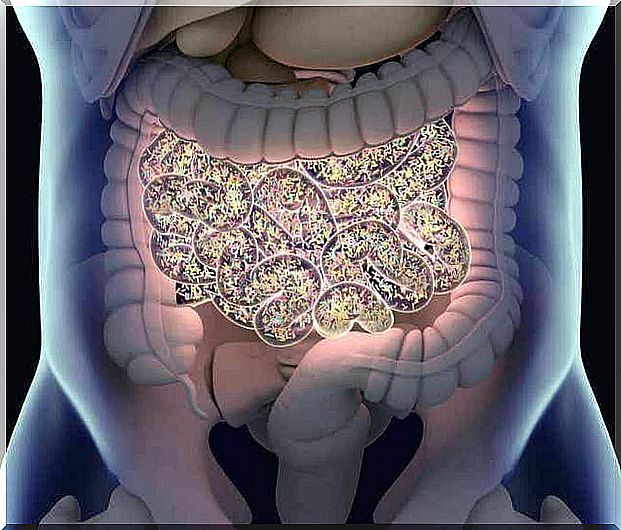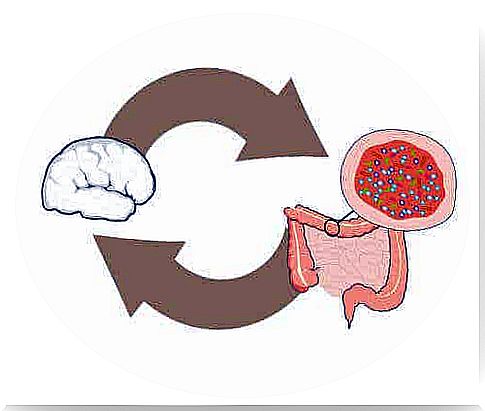The Link Between Intestinal Bacteria And Obesity

The human body has a huge number of bacteria that help the body perform numerous different functions, such as various functions in the digestive system. Some bacteria protect us from other bacteria that can cause disease. Good bacteria include e.g. intestinal bacteria. Today we want to take a closer look at the possible link between intestinal bacteria and obesity.
Intestinal bacteria form the intestinal microbiota. This is a group of microorganisms that live permanently in the digestive tract. It is mainly made up of bacteria, but viruses and fungi can also be involved.
This intestinal microbiota makes up nearly 3.3 pounds of our weight. According to the researchers, these bacteria perform many functions. This is because they play a significant role in the various metabolic reactions we need to live. At the same time, they also stimulate the immune system.
The role of these intestinal bacteria in health problems such as obesity is currently being studied. In this article, we provide the latest information on the subject, and explain why intestinal bacteria can be a crucial factor in the treatment of obesity.
What is the role of intestinal bacteria?
As already mentioned, intestinal bacteria are microorganisms that reside permanently in the digestive tract. They are made up of different species, and in addition, each person has a different intestinal microbiota.
Scientists have studied the differences between human microbiota to show what functions these bacteria perform in our body. It has been found that a healthy microbiota helps maintain balance throughout the body.
Studies show that intestinal bacteria affect the body’s metabolism. Apparently, they help regulate appetite and weight as well as the inflammatory process associated with obesity. Intestinal bacteria can even play an important role in stress management.
It has previously been found that healthy people have many bacteria of the genus Clostridium in their gut. Those individuals who have problems with the immune system again have far fewer of these bacteria.

Role in the development of diseases
Recent studies suggest that these intestinal bacteria may play an important role in the onset of certain diseases. For example, when intestinal microbiota are involved in glucose metabolism, they may have to do with the development of diabetes.
Bacteria may even have to do with various cardiovascular diseases. One of the most important data is that variations in intestinal vegetation have been observed in obese people.
This is one of the most significant research findings because obesity is prevalent today. It is estimated that there are approximately 650 million obese people in the world.

What is the link between intestinal bacteria and obesity?
When the amount of intestinal bacteria is unbalanced, various changes can take place in the body. It seems that many obese people have bacteria that are able to utilize much more of the energy in certain foods.
That is, these bacteria absorb more nutrients than others. Therefore, the number of calories is higher than in slimmer people whose microbes cannot use these nutrients. Other changes that vary depending on the gut bacteria in an obese person include:
- The production of NSAIDs in the body decreases.
- Lack of regulation of appetite or intestinal function.
- The accumulation of fats in the body is greater.
All the above points are still being examined. However, they represent a significant leap forward in the study of obesity. This is because if intestinal bacteria play a role in weight management, they may be the basis for future treatments for obesity.
New therapies would be based on altering the balance of intestinal bacteria. In this way, the aim would therefore be to artificially balance the bacterial population in the gut. This can be done with certain probiotics or even with stool transplants.
Although it may seem strange, stool transplants are already used to treat certain infections. They help replace bacterial growth in the gut.
Overall, this topic is still being explored and is an important step forward in medicine.









